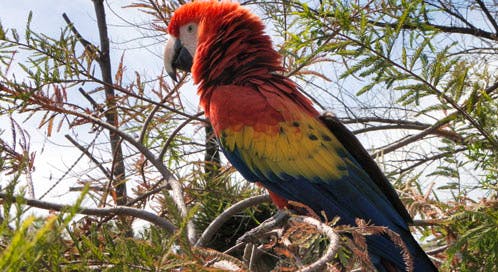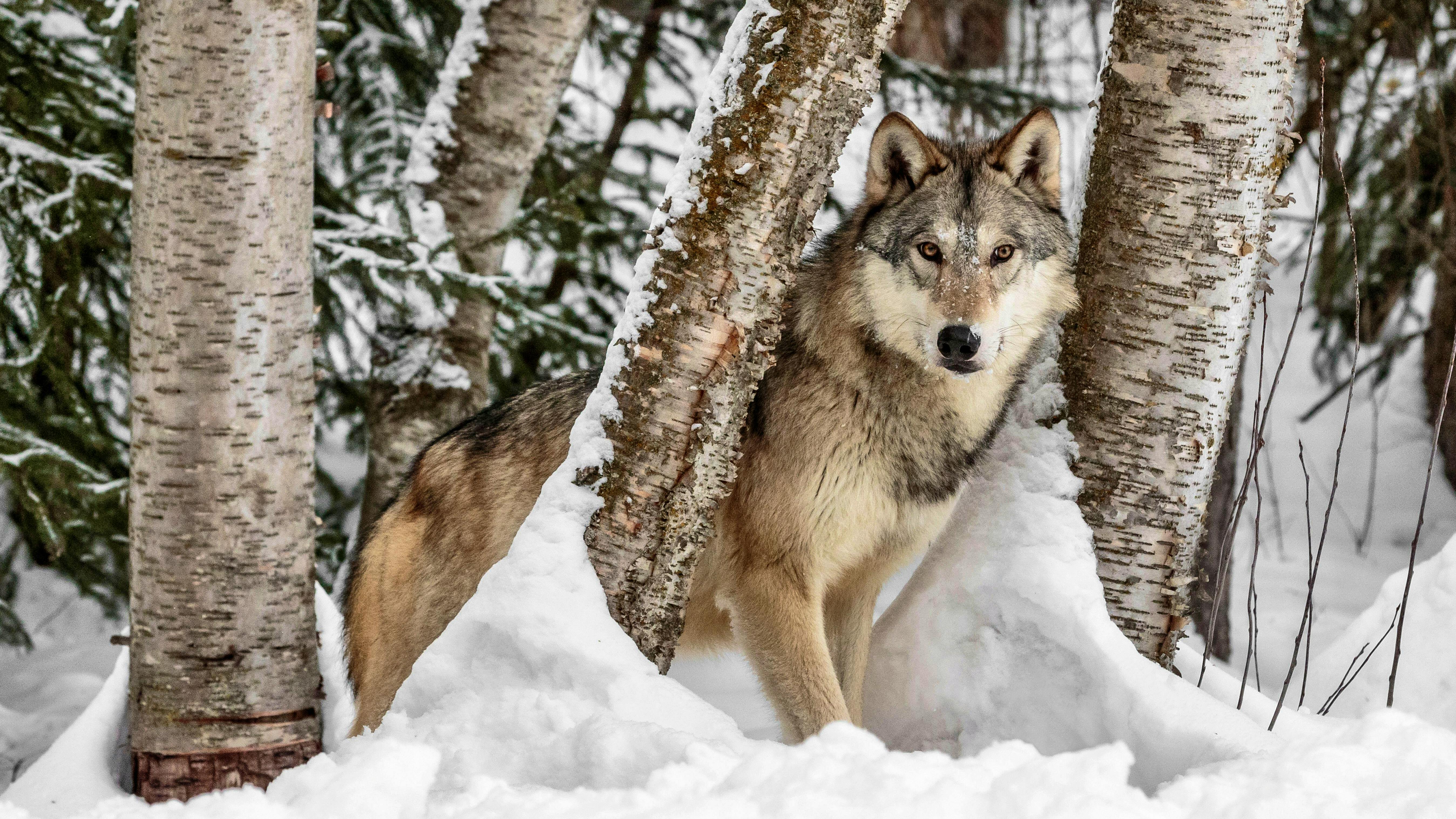Defenders and partners run a successful campaign against a misleading advertisement in Mexico
One of the foremost threats to the survival of the 22 species of parrots and macaws here in Mexico is illegal trade. Thanks in great part to Defender’s report (PDF) on illegal trade of parrots in the country, Mexico banned all capture and trade of these species in 2008. Ever since then, we have carried out a national communications campaign together with environmental institutions and NGOs to inform the public not to buy wild parrots or macaws.

Parrot poachers chop down nesting trees and cut open nesting holes to steal parrot chicks
In early March, we saw with dismay the appearance of a television advertisement that depicted the national soccer team’s coach taking possession of a yellow-cheeked parrot (a species protected by Mexican law) during a match between Mexico and Nigeria which was watched by millions. The ad came from an online classified ads company “Segundamano” owned by Spanish and Norwegians companies. The big problem with the ad is that it ended with the company’s slogan “Segundamano, where you safely buy and sell” implying that the audience could buy and sell parrots on the website. A few days after the commercial aired, several ads offering endangered and threatened parrots for sale appeared on the Segundamano’s website, including military macaws and orange-fronted parrots.
Over the past five years, we have distributed throughout the country more than 100,000 copies of posters, reading and coloring books for children, comic books for youths and adults, and stickers with information on the threats faced by parrots, asking people to help save them by not buying any wild parrot or macaw because it is illegal. Along with our conservation colleagues, we created a webpage — www.pericosmexico.org — where people can get more information about the parrots and the impacts of the trade, and we have appeared in dozens of interviews on television, radio, magazines and newspapers, as well as given talks in schools, symposiums, bird and environmental festivals, zoos, and basically anywhere where we can reach people with this important message.

One of the posters we distribute to raise awareness that it is illegal to buy, sell or possess wild parrots in Mexico.
The hard work of reaching multitudes with our communications campaign was being torn asunder by a few seconds of an ad shown in a country where soccer is the foremost sport, the World Cup is just a few months away, and the spokesperson is none other than the head coach of the national team. Moreover, the ad was shown afterwards during primetime slots, and a second ad with the same storyline came out a week after the first one. Their misleading message was reaching millions of Mexicans everyday!
We united forces with other NGOs and parrot experts to present a public denunciation against this campaign with the Environmental Enforcement Agency (PROFEPA) arguing that a protected species was being used in manner that promoted illegal trade. We also presented a complaint with the Consumer Protection Agency arguing that the ad misled the public into committing a crime. We also sent letters to the Environmental Ministry, federal senators and deputies, Mexico City’s congress, Mexican Soccer Federation (FMF) and started public pressure in the media.
PROFEPA immediately responded by issuing a press release exhorting Segundamano to withdraw their campaign so as not to promote illegal trade of parrots while they investigated the legality of the case. The issue became a scandal in the sports media, and while it was taken as joke by some sports news sites, the Director of all national teams from the FMF came out to say it was all a misunderstanding and the ads had been withdrawn by the company, which turned out not to be true.

The yellow-headed parrot, Amazona oratrix
A series of meetings ensued afterwards between PROFEPA and the NGOs; PROFEPA and the managers of Segundamano along with their lawyers and publicists, and finally between NGOs and Segundamano´s team. We explained to them the illegality and effects of the ads in the promotion of illegal trade of parrots.
Last week, PROFEPA issued a last-minute press release announcing that the company Segundamano had agreed to withdraw their ad campaign from all media. They also agreed to stop publishing any ads selling endangered or protected wildlife species, as a similar online classified ad company has done. This might seem like a common sense step, but here in Mexico (and in many countries) online trade is still very much unregulated. Companies may have internal regulations forbidding them to publish ads like these, that encourage trade of protected wildlife, but they don’t always enforce them. Instead of reviewing the ads before publishing, they rely on the complaints they receive to take the ads down, which puts the burden of time and costs for policing the website on the public and on authorities. That Segundamano and a similar company have committed to not publishing these ads anymore at all is a great blow to the illegal trade of imperiled wildlife.
Our efforts to put a stop to Segundamano’s parrot ad campaign ended successfully; they will withdraw their million dollar campaign. This is a huge step towards eliminating illegal trade of wildlife online, and hopefully all the uproar that was created in the media about promotion of illegal trade of parrots helped to reach a larger audience and teach them about the illegality of trading parrots in Mexico and the threats those parrots are facing.
Juan Carlos Cantu, Mexico Program Manager
From the Blog






Follow Defenders of Wildlife
facebook twitter instagram youtube tiktok threads